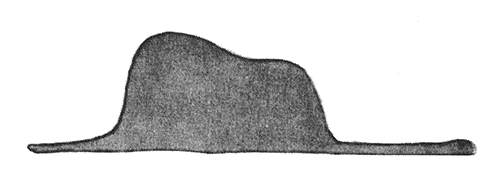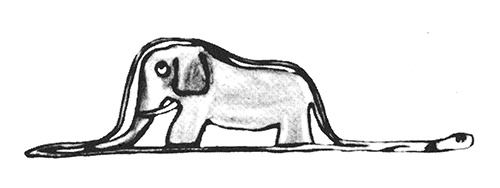As writers and drawers of children’s books, we will tend to write and draw material based on our own particular leanings and biases, and we’ll most likely attract readers who share the same. That is a good thing.
Young, beginning readers, who are just discovering their world and forming their own thoughts and preferences are easily influenced through what they read. Reading is always a learning experience no matter the age of the reader, but because much of our particular target audience is very young, the things they learn from us can have quite an impact … an impact that may very well carry into adulthood.
When we write and draw for them, let’s show them how to appreciate and enjoy all sides of life. They will be forming their own opinions and making their own choices about their lives as they learn and grow. Opinions and choices can be wise or unwise, and are naturally exclusive. Despite what the world says, it’s not good to blindly accept and tolerate any old thing anybody says or does. Wisdom is keeping the window open, but making sure there’s a screen!
God designed us to have the freedom to each choose how we want to be, and even though some will disagree with the choices of others, that doesn’t mean we can’t appreciate and learn from each other.
It’s a big world and He has much important work for us to do. We’re individually designed and equipped for the work He’s assigned specifically for each of us, and sometimes our differences can cause us to take sides …
Here is a very important drawing …

It was drawn by a little boy who got unexpected reactions when he showed it to the grown-ups in his life. Reactions that taught him that there are two kinds of people in the world ... dreamers and doers.
He fell into the first category, and as he moved through life he was always on the lookout for other dreamers with whom he could discuss the really important matters in life, like forests and stars and boa constrictors. But then he’d run into folks in the other category ... the doers. Those were the ones who, like the grown-ups, always had to have things explained to them.
So he made another drawing of the same thing, from the inside …

Even with it drawn for them to plainly see, he still had to explain to the doers that it’s a boa constrictor digesting an elephant. It was obvious that in order to converse with these folks, he’d have to come down to their level and settle for discussing the mundane, like golf and politics and such.
He saved his first drawing and whenever he met a new person, he would show it to them, and know immediately by their response how to adjust his conversations with them. Apparently he met more doers than dreamers, because he says, “So I lived my life alone, without anyone that I could really talk to.”
And thus begins The Little Prince by Antoine de Saint-Exupéry. A book that’s definitely for the dreamers, and is a favorite of this dreamer.
Dreamers know that there are more important things in life than washing dishes and paying taxes and going to work. They know, as Mr. Saint-Exupéry explains, “What is essential is invisible to the eye.” Dreamers can sometimes have lofty opinions of themselves and look down their noses at the doers.
Doers know things, too … that our own hearts can deceive us and that there are consequences to be had when the dishes, taxes, work and other practical things are ignored are for too long. Doers shake their heads at the dreamers and tell them to grow up already! You can’t put food on the table by daydreaming your life away!
Like the children and the grown-ups in The Little Prince, the dreamers and the doers in real life tend to line up in opposition to each other. Somebody’s right and somebody’s wrong.
And, just like in real life, reality can sneak up on both of them, and it can hurt when it hits.
This is the kind of stuff you need to think about, because one day you’ll write a story with characters – some of whom are doers and some of whom are dreamers – and those characters will impact your story in huge ways.
Will they butt heads? Oppose each other? Collaborate with each other?
Those young readers you are writing for will be hugely impacted, because they may currently be in the process of deciding which camp they fall into.
So this month let’s take a look at the dreamers and doers, the pluses and minuses of each mindset, and what happens when reality lands a punch on both.